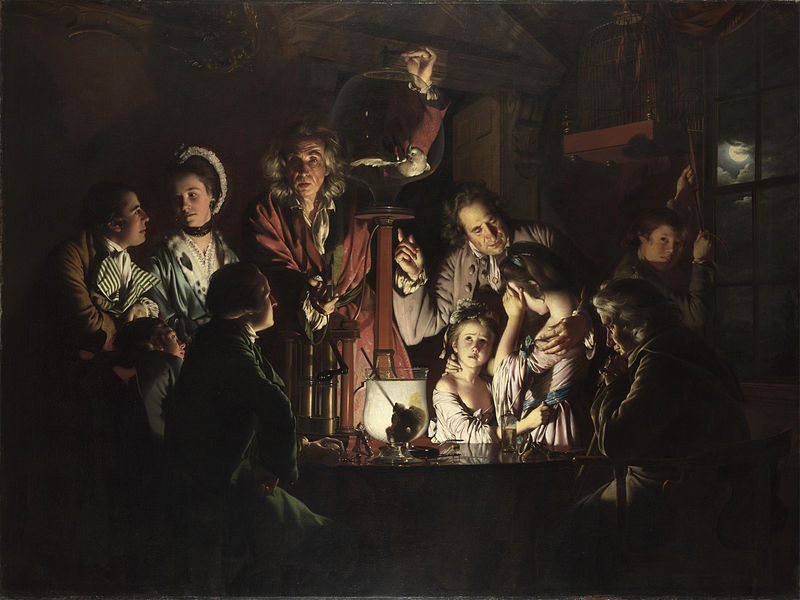The experimental method of science was developed in Europe by the working craftspeople and trading merchants of 16th Century. But experimental knowledge was not accepted by the English monarchy until after the English civil war when Charles II gave assent to the Royal Society during the 17th Century. Aristocrat Robert Boyle explicitly modelled the controversial new experimental method upon legal practices used by political authorities. Thus witnesses who attested to the results of an experiment were more credible if they were aristocratic, male, and close to the establishment. Those who did not own property weren’t considered independent and thus could not have an independent or ‘modest’ opinion. Boyle adopted the legal standards for witnessing from Clarendon’s 1661 Treason Act, thus directly tying the power to speak with scientific authority to practices of upholding sovereignty.
Not only did Boyle’s method link science to sovereignty it also prioritized men over women. At one demonstration of air pressure attended by high-born women, small birds were suffocated by the evacuation of the air chamber in which the animals were held. The ladies interrupted the experiments by demanding that air be let in to rescue a struggling bird. Boyle reports that to avoid such difficulties, the men later assembled at night to conduct the procedure and attest to the results.
Joeseph Wright’s “Experiment on a Bird in an Airpump” (1768)
After almost 300 years of excluding woman the Royal Society was forced in 1945 by legal threat to accept women members. More recently, despite defending the authenticity of climate science the Royal Society has campaigned for biotechnology and geo-engineering, technologies favoured by global scale commercial interests. Biotechnology allows private ownership of common genetic resources after small changes are made to the genetic heritage; thus with biotechnology private ownership of the world’s food supply can and is being sought. Geo-engineering focuses on protecting a wasteful and unfair economic system by changing the planet rather than protecting people (and our planet) by eliminating a bad economic system.


I first heard of the concept of anarchist science just last month, when I read an opinion piece by Randall Amster in New Scientist (7 July 2012) so I am delighted to find this blog.
The article was about ‘anarchists’ using terror tactics against scientists and in it Amster suggests “…we might usefully seek to synthesise anarchism’s ideals with scientific inquiry. Perhaps we can even conceive an ‘anarchist science’ that seeks progress towards cooperative and empathetic impulses, decentralised production of life’s essentials, and restoration of the commons to promote collective wealth and environmental sustainability.” My first response was “yeah, right!” but then I thought “why not?” Why isn’t science more radical? Funding certainly limits research into topics lacking some obvious link to economic growth and boosting profits for some multinational or another. We don’t need a gazillion i-gadgets but we do need to decentralise the production of life’s essentials, and restore the commons to promote collective wealth and environmental sustainability.
We’ve been seeking to control nature with our technology since we invented the hoe. Hoes are not so powerful. Geoengineering is one of the most potentially powerful technologies we could unleash on the world. We do not understand global weather patterns, ecosystems and the myriad interconnections between all forms of life on this planet well enough to even begin to predict how our interventions might play out. Despite all the climate models that exist, nature is still surprising us without geoengineering (other than that being done by humans in the name of progress).
Anyway, I fear this site isn’t going to flourish as there only seems to be a couple of articles and nothing for several months. But I hope time & inclination will allow more postings on anarchist science as I’m keen to learn more. Some author info wouldn’t go amiss either!